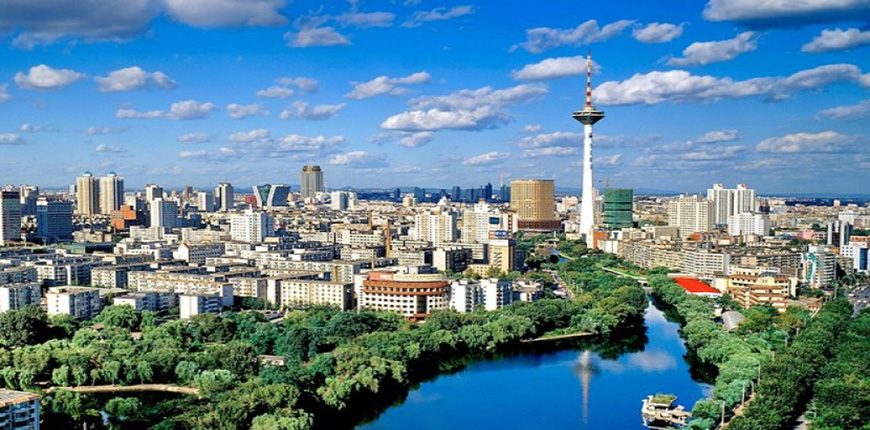Understanding Both Sides of the Complex Issue
Discrimination and Resentment
Many Uighurs face discrimination and racism in their interactions with Han Chinese. They are often viewed with suspicion and denied opportunities like housing due to unwarranted fears. Resentment grows out of tragic incidents where Uighurs suffered losses that could have been prevented with more nuanced policies. However, blanket accusations or reactions help no one; understanding different perspectives is key.

Government Policies with Unintended Consequences
Well-meaning laws to protect minority rights can backfire if enforced without flexibility. One man lost control of his property due to an inflexible policy favoring tenants’ customs over reasonable rent increases. over time, such cases breed mistrust on both sides. Greater cultural sensitivity and balanced judgment are needed to avoid further tensions.
The Vast Majority Wish to Coexist in Peace
Most Uighurs and Han Chinese have little direct contact or conflict. Farmers in remote oasis towns live independently with few interethnic issues. However, those affected by tragedy understandably feel strong emotions. is critical not to generalize from isolated angry voices but recognize the peaceful will of the silent moderate majority.
Stories from Both Sides Offer Insight
Hearing respectful perspectives from members of different groups fosters understanding. One Uighur man facing daily discrimination still believes in cooperation. Meanwhile, a Han landlords’ bad experience stemmed from a one-sided legal ruling, not inherent racism. With open and honest dialogue, misconceptions can be addressed before escalating into bigger problems.
A Complex Regional History Complicates the Present
Some Uighurs see Chinese influence in Xinjiang as an illegitimate occupation denying their autonomy, while others see development improving lives. However, framing things as an “us vs. them” contest helps no one. History cannot be changed, but its impact on today’s policies and social realities requires thoughtful discussion separating facts from rhetoric. Non-politicized solutions must consider all communities’ well-being.
Moving Forward Together Will Take Time and Effort
After decades of societal changes and past conflicts, full trust and respect between all groups cannot be restored overnight. But with good faith on all sides, more cooperative and nuanced policies, and individuals judging others as individuals rather than stereotypes, relations can gradually improve for the benefit of all peoples in the region. Open and honest dialogue is the first step.
Building Understanding Through Shared Stories
One Uighur Man’s Experience of Discrimination
One young Uighur man details the daily discrimination and microaggressions he faces, from being denied taxis or hotel rooms to strangers’ insensitive comments. However, he believes most conflicts stem from ignorance rather than malice, and that presenting Uighurs’ humanity through open conversation can help overcome misconceptions. Representing his people with dignity earns him respect in return.
A Han Landlord Learns from a Difficult Experience
A Han Chinese man recounts how an ethnic tenant used an inflexible law protecting cultural customs to illegally seize control of his property for years. While this left resentment, he recognizes now that one bad experience should not define an entire group. With the facts made clear rather than rumors spreading, others may see how good policy and good faith on all sides are needed to avoid fueling divisions.
Life in Remote Farming Communities Stays Peaceful
Ethnic Uighur farmers living far from cities face few ethnic tensions in their daily lives. With little interaction with Han communities, remote oasis villages remain harmonious places where people cooperate as neighbors regardless of background. This reality, often ignored, shows that with distance from political issues, different peoples can live together respectfully. Their example is a ray of hope.
Forging Understanding Between Young People
Young Uighurs and Han studying together in the cities find they have far more in common than differences when given the chance to know one another. Building personal relationships across perceived divisions helps counteract polarization. Initiatives like language exchanges, cultural festivals and joint community service projects allow open interaction that strengthens interethnic social cohesion for a shared future of tolerance.
A Call for Nuanced Discussion, Not Simplified Blaming
All communities have nuanced internal diversities of opinion that cannot be reduced to simplistic generalization. One thoughtful Uighur argues it is counterproductive and factually incorrect to label any group as universally hostile, whether Uighurs towards Han or vice versa. Framing problems in non-divisive terms and addressing specific policy issues, not peoples, makes solution-finding discussions possible.
Pursuing Harmony Through Understanding and Goodwill
Progress requires acknowledging history’s complexities but focusing constructively on building a shared future. With open-minded discussion of nuanced realities and lived experiences, misunderstandings can give way to respect between all groups. While significant efforts are still needed, stories of cooperation amid challenges show the human capacity for reconciliation when different peoples resolve to understand each other in good faith. By persistently choosing empathy over accusation, unity over division, all communities stand to benefit.

 The Deep Meaning of Malama Pono in Hawaiian Language and Culture
The Deep Meaning of Malama Pono in Hawaiian Language and Culture